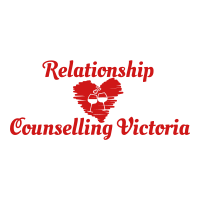
After the affair
An affair is a deep violation of the security that an exclusive, monogamous relationship provides.
The discovery of an affair is one of the most devastating experiences in a relationship. The hurt, the betrayal of trust, the fear that it could happen again and the self-doubt (was I not good enough?) are common and overwhelming feelings for the betrayed partner. On the other hand, the partner who cheated is also hurting, feeling guilty and ashamed and worrying that the partner will leave.
This usually leads to an emotional roller coaster between hope for recovery and fear of separation, between love and hate, and between times of attempts to reconnect and times of intense anger and arguments. How both partners deal with the aftermath determines the health of the relationship from then on.
What happens to couples after the discovery?
About two thirds of couples stay together after an infidelity. However, about half of those who decide to stay together never fully recover and a deep hurt remains. This hurt is often expressed in the form of anger and criticism by the injured partner and made worse by excuses, defensiveness and withdrawal by the partner who cheated.
However, the other half tends to take a good look at what went wrong. The partner who cheated is able to be honest, open and takes responsibility for their actions. They are also able to empathize with the hurt that they caused their partner, make amends and learn from their mistakes.
After some time of soul searching, these couples are able to create a relationship that is stronger than it was before. These are usually couples who seek the help of a relationship counsellor. Recovery after an affair is possible.
Why do people have affairs?
The reasons for an affair vary from person to person. In general, research shows that women are more likely to have an emotional affair when there are dissatisfied in their relationship. In comparison, men are often happy in their relationship, but are more commonly motivated by the opportunity, the thrill and a potential ego boost.
Strategies to get past the affair:
The affair must end. The partner having the affair must break all contact. Ideally, both partners phone the third person and together tell them that the affair is over.
The cheated partner must have the opportunity to express their hurt feelings (these might include shock, hurt, anger, sadness, betrayal, loss of security, embarrassment, self-blame and more). It is important for the partner who had the affair to listen, accept and validate feelings of the other one. Additionally, they also should provide a commitment and reassurance that he or she wants and values this relationship – exclusively.
The partner who had the affair must take responsibility. This helps to rebuild the trust by being transparent and accountable. On the one hand, it means to not allow guilt and shame to deny, minimize, blame or be defensive. On the other hand, it means to be willing to have phone and emails open to share with their partner. As a result, this may also dis-confirm the fears and suspicions of the betrayed partner until enough trust has been rebuilt.
Finding answers. This is mainly for the partner who cheated to explore why they crossed boundaries and then learn from it. However, sometimes vulnerabilities in the relationship provide a breeding ground for affairs. Therefore, both partners need to explore why this affair has happened so that it doesn’t reoccur again.
Forgiveness is the ultimate goal in order to repair the relationship. It might take months, or even years for this to occur and it is a process, not a one-off event. Therefore, the partner having had the affair needs to be patient, humble, empathetic and take full responsibility for the hurt the partner has been put through. Only then is it possible for the other partner to be able to forgive fully. However, forgiveness is a risk and also requires hard work from the betrayed partner to take responsibility for managing their own hurt feelings.
Assessing and repairing the relationship. This involves addressing vulnerabilities and working on underlying problems in order to restore and grow a healthy relationship, that might be stronger than it was before the affair.
Very few couples manage this process on their own. Almost all couples need help from a counsellor who is experienced dealing with infidelities in order to successfully complete these steps.
Click here for more strategies on how to deal with an affair

